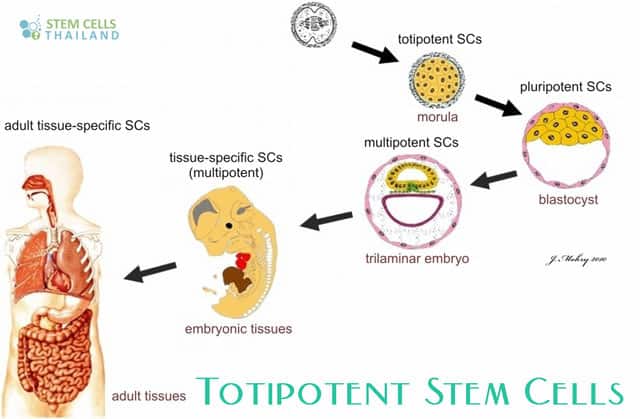
Totipotent stem cells are very unique among all other variants of stem cells, because totipotent stem cells possess the highest possible ability to construct an entire organism from a single cell.
Totipotent stem cells are cells that have the capability to develop into any type of cell in an organism, including the cells of the extraembryonic membranes (such as the placenta). This means they have the potential to create an entire organism. The term “totipotent” derives from the Latin words “totus” (whole) and “potens” (powerful), which together suggest “total potential.”
In summary, totipotent stem cells are a fascinating area of study in developmental biology and regenerative medicine, but their use comes with ethical considerations due to their potential to become an entire organism.
They have the flexibility to transform into any type of special cells, even the likelihood of forming a new kind of organism.
Chimeric antigen receptor-T cell treatment (CAR-T cell therapy) holds immense potential to revolutionize organ transplantation, particularly for patients who struggle… Read More
In the ever-evolving landscape of nutrition science, the discourse around dietary fats has undergone significant transformation. The Regeneration Center is… Read More
New research shows that specific types of brain cells become active after brain injuries and exhibit properties similar to those… Read More
Chemokines, critical components in the immune system, are small proteins that facilitate the migration and positioning of immune cells throughout… Read More
Stem cell research examines everything from gene expression to differentiation capacities to therapeutic potentials. With such diverse data types and… Read More
Stem cell therapy has emerged as a revolutionary new treatment approach for neurological and spinal disorders. One up-and-coming method of… Read More